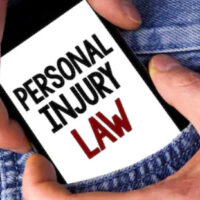Collectability Can be an Issue in Injury Cases

One big consideration in any personal injury case is whether or not you can win your case. That seems obvious. What isn’t so obvious is the question of what happens after you win your case. Many people don’t give thought to the question of collectability—that is, whether or not a person or a business that is ordered to pay damages to you can actually pay what they are supposed to pay.
Insurance Can Help
The answer to this question is usually insurance. Even if a settlement is reached, or a jury orders that someone pay money, it is the insurance company that will be paying the money – not the person individually (a fact that the jury in court usually is never told, but may know from their own life experience).
Certainly, in many cases, there will be insurance to pay whatever a person or business is ordered to pay. Although many people do drive the roadways with no insurance, most people have some form of insurance that can and will pay whatever a jury orders, at least to the limits of the insurance policy.
Additionally, many large companies either have insurance, or otherwise are so large that they don’t have to worry about being able to pay whatever verdict is entered against them. Companies like Walmart or your local large-chain retail grocery store have sufficient assets to pay for whatever damages that their negligence may cause.
When Insurance and Collectibility Problems Arise
But sometimes, collectability or the availability of insurance may not be so clear. Common examples may include:
- Intentional acts, which usually are excluded in most insurance policies
- Lawsuits against very small businesses which may have little or no liability insurance
- Accidents in people’s homes, as homeowners’ insurance policies often have numerous exclusions
- Suing any person who is not insured, or who may have a very small policy in which case they are considered to be underinsured.
“Not My Fault”
Often companies will try to “pass the buck,” to make it seem like another, smaller, and potentially uninsured company is liable. Imagine falling in the local Target, a company that has sufficient insurance and assets to pay any judgment. But now Target says that you fell because a maintenance company that Target hires didn’t do its job properly. That maintenance company has three employees and little or no insurance. Who is liable? If it’s the maintenance company, you could have collectability issues.
Negligent security, which results in crimes, often can lead to this situation. The large, insured company tries to say the crime wasn’t their fault, but rather is the sole fault of the individual, uninsured wrongdoer/criminal.
All of this means that when a business points the finger at someone else, it likely is doing that to make your job of collecting your verdict that much more difficult.
Call the Knoxville personal injury attorneys at Fox, Farley, Willis & Burnette, today if you have suffered any type of injury, for a full analysis of your injury case.











